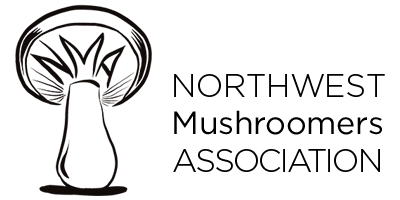On average, there are about 7,400 poisonings from ingesting poisonous mushrooms a year in the United States, resulting in about 40 exposures causing major harm to health. About 3 people a year die from ingesting poisonous mushrooms. Almost all these cases are associated with ingesting wild mushrooms.
The time between ingesting poisonous mushrooms to receiving definitive treatment for the poisoning can be the difference between getting back to full health and the possible loss of life.
Suspect poisonings
If you are alone, call 911 immediately and then follow steps 2 – 5 below while waiting for the emergency responders to arrive. If there is someone who can assist you in taking you to an emergency room at a hospital then arrange to be taken, after taking the following steps:
- Call the Poison Control Center at 1-800-222-1222.
- Collect and place in a paper or plastic bag all the remaining mushrooms, discarded mushroom trimmings, and make notes of where the mushrooms were collected from.
- On your sheet of notes, include when the mushrooms were ingested, how much of each type of mushroom was consumed, what you thought the mushroom species were, and how the mushrooms were prepared.
- You will need to give the bag of mushrooms and your notes to the emergency responders or the emergency room attending physician.
- If you do not have any mushroom remnants, ask a friend to go back to the place you harvested the mushrooms from and gather samples to give to the emergency room attending physician.

Specimens of the mycorrhizal Amanita phalloides (copyright Danny Miller) have been found fruiting in Bellingham since at least 2013. Watch out for these deadly poisonous and beautiful mushrooms!
Severe illness risk factors
In medical terms, risk factors translate to “susceptibility to severe illness.” Mushroom poisoning outcomes are largely associated with three factors. These factors are:
- Type of mushroom ingested
- Amount of poisonous mushrooms ingested
- Health conditions associated with higher risk of severe illness
Knowing exactly what mushrooms, how much, and when the mushrooms were ingested helps guide medical care to the best possible outcome. The poisonous substance is different by type of mushrooms ingested. The biggest problem for a person ingesting poisonous mushrooms is the only reliable tests are blood tests that are late stage indicators checking for liver and kidney function.
Reduced function of the liver and/or kidneys increases the poor outcomes of mushroom poisoning. Even an undiagnosed, minimally reduced function of these organs can change the outcome of a poisoning. Here is a short list of some of these conditions:
- Hepatitis A, B, or C
- Liver cirrhosis
- Liver transplant
- Fatty liver disease
- Diabetes
- Chronic kidney disease (40% of people with this condition are undiagnosed)
